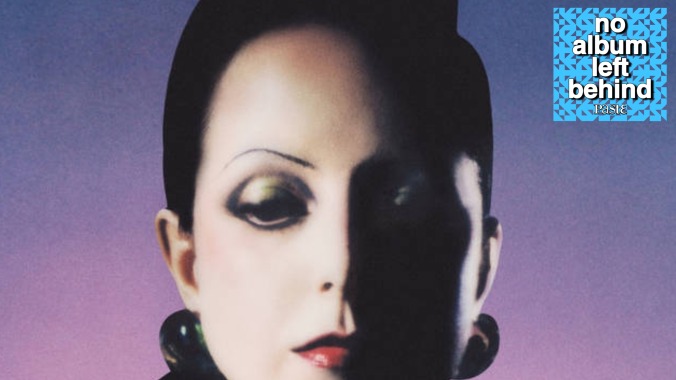No Album Left Behind: Fabiana Palladino, Fabiana Palladino
The English singer-songwriter’s retro sound is built for the modern day, recalling a time when pop craftsmanship didn’t require unfettered access to tabloid archives—when thematic relatability and sonic commitment could let anyone with reasonable talent top the charts.

In her video for “Stay With Me Through The Night,” Fabiana Palladino presents herself through a vintage lens, colored like a televised evening performance of piano-pop balladry might have been during the first Reagan administration. In her maroon suit and matching ring, she delivers extraordinary pathos while striking rich piano chords, tempered by a funky bass that keeps the melody moving. This is how Palladino finds the balance between retro and contemporary. On her self-titled debut album, Palladino’s breakup anthems offer the velveteen emotion of ‘80s soul pop with lyrics that don’t hold back. Where hazy, vintage production can erect a barrier between listener and singer, Palladino’s intimate, Janet Jacksonian musings feel immediate, breathing much-needed vitality into a recognizable sound.
21st century pop loves to play in the sandboxes of its progenitors, to varying degrees of success. In the underground, there is a wealth of musicians borrowing vintage pop’s tools and updating them just enough to bridge past and present. Singers like Sampha and Laura Groves wield their mighty voices like spotlights on foggy ballads that maximize pensive emotionality, while bands like TOPS and Sorry Girls bring soft rock into the 21st century with toe-tapping melodies and, at due times, rich emotion. Fabiana Palladino approximates these gestures and more, incorporating soul and funk on tracks overcome with emotion. Her feelings are more kinetic, less contemplative. Whether on the guitar-driven balladry of “Give Me A Sign” or on the booming clarity of “I Can’t Dream Anymore,” Palladino’s breakup songs are rich in style and seriousness. It’s the kind of pop that’s meant to carry you away on a bed of pure feeling.
Palladino has the gold standard of collaborators on her side, elevating the album to its fullest potential. Legendary connoisseur and crafter of forward-thinking pop Jai Paul serves as its executive producer; he cold-emailed Palladino nearly a decade ago after he encountered her early work on SoundCloud, inviting her to be a part of the new label he would co-head. Paul can be best heard on “I Care,” a slow-burning exploration of modern-day romance styled like a syrupy Motown duet. She’s also flanked by her ultra-musical family: brother Rocco, sister Giancarla, mother Maz and father Pino, best known as a legendary session musician for everyone from D’Angelo to Eric Clapton. Years of absorbing best practices from those closest to her while maintaining a deliberate pace with her own process helped Fabiana seek and achieve perfection on her debut, arriving as a fully formed left-of-center pop artist. Palladino’s meticulousness and her ecosystem’s flexibility are major reasons why Fabiana Palladino is full of hits, with not a single track falling short of a modern classic.
-

-

-

-

-

-

-

-

-

-

-

-

-

-

-

-

-

-

-

-

-

-

-

-

-

-

-

-

-

-

-

-

-

-

-

-

-

-

-

-








































